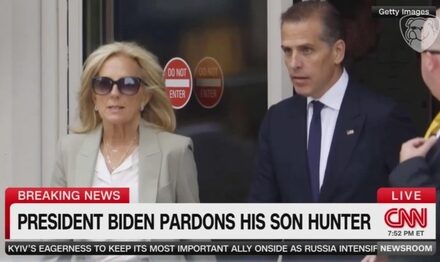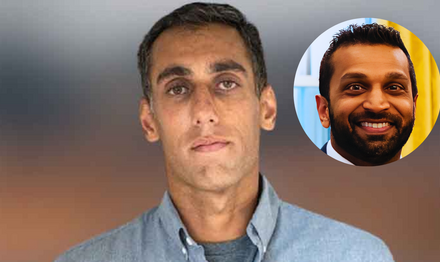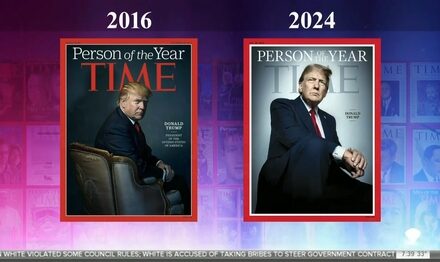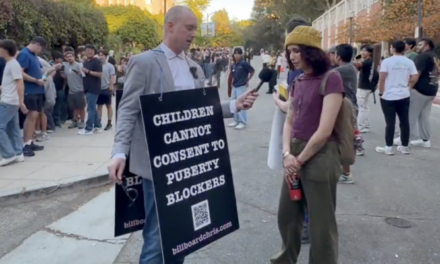We support our Publishers and Content Creators. You can view this story on their website by CLICKING HERE.
The PBS partnership with the liberal “fact checkers” at PolitiFact was celebrated on Christmas with a seven-minute promotional segment for their “Lie of the Year” award, granted to Donald Trump and J.D. Vance for Trump’s claim Haitian migrants were “eating the pets” in Springfield, Ohio.
They didn’t prove that, but PBS made no attempt to question the liberal tilt of PolitiFact in 2024 — because they share the tilt. In the first nine months of the year, NewsBusters found Republicans were rated “Mostly False” or worse 79 percent of the time, more than twice as often as Democrats (36 percent). Weekend anchor Ali Rogin asked if there was a “kernel of truth” in this. Sanders said no.
KATIE SANDERS: J.D. Vance even acknowledged that these reports he was hearing from his constituents might turn out to be false. But, when they did, when they turned out to be empty, he just kept defending the lie anyway, saying he could do that to bring attention to Springfield’s immigration experience.
So, when you ask what separates a lie from a false claim, we only use the word lie once a year for Lie of the Year. We avoid it most of the time because of the intentionality. It’s very hard to sort out whether people are intentionally trying to deceive with a false claim.
But I think, here, it was pointed out again and again and again that there was no evidence to support a claim that sounds truly shocking and was said on the campaign’s biggest stage. And they just continued to repeat it and defend it.
PolitiFact has repeatedly claimed they only use the word lie “once a year.” But they have a “Pants on Fire” rating they use all the time, which strongly implies lying. It continued:
ALI ROGIN: It’s easy to get caught up in the rhetorical battle and the high emotions that certainly the immigration debate spurs. But, of course, in Springfield itself, there were real consequences for the people living there. There were bomb threats made. Haitian migrants were fearing for their lives. What was the impact of this lie on the city of Springfield and the people there?
KATIE SANDERS: It was far-reaching. You had the tangible effects with the bomb threats and evacuations of schools, city buildings, grocery stores, other places. That caused a lot of upheaval in the days after the debate, when Trump basically marked the town.
But then you have kind of the emotional toll. We spoke to one business owner who was Haitian whose son asked him point blank, “Dad, do we eat dogs and cats?” because he had been teased at school. We talked to bilingual specialists, who said that they would tell students during evacuations that they were going on a field trip, but really they were leaving their building out of fear and safety. So there was just a lot of chaos.
Neither journalist mentioned that the bomb threats came in from overseas. They just love to spread the notion that Republicans endanger immigrants with their dangerous speech about migrant crime. At the end, Rogin noted that Trump has repeatedly been tagged with “Lie of the Year (she didn’t say SEVEN out of ten), but complained there’s a problem with the American people and the Truth:
ALI ROGIN: This isn’t the first time President Trump has ended up on a PolitiFact’s list, started in 2015. His words made an appearance when he downplayed the impact of COVID-19, yet again when he downplayed the significance of the January 6 attack on the U.S. Capitol.
Many of these lies continue to be repeated each year, even though they have been repeatedly debunked. So what does that say about the American relationship with the truth these days, when something can be repeated enough that it just becomes part of the discourse, even though it’s been roundly shown to not be true?
KATIE SANDERS: It has been a recurring theme in the last decade that he has been a contender or a winner or a co-winner of this award. There’s just no changing that with the frequency and kind of the casual nature that he brings up claims that are new and untrue or repeated or untrue.
At the end of the day, I think that people make their decisions for a lot of reasons. And I think a lot of people do value the information that reporters and journalists like ours put out, even if that doesn’t factor into their choice. I think people are really driven by their emotions, how they feel about hot-button issues on the economy or immigration. And so I just think that people have a lot of motivations. It’s really telling that there can be a lot of success, even if you aren’t sticking to the truth.
When Democrats lose, they claim “people are really driven by their emotions.”

 Conservative
Conservative  Search
Search Trending
Trending Current News
Current News 





